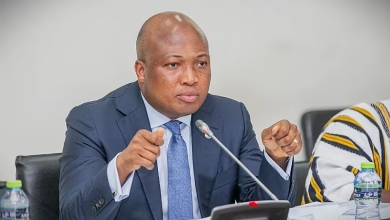North Korea launched a series of short-range ballistic missiles early Wednesday, marking the second weapons test in just a week, according to South Korea’s military. This latest display of military capability adds to the dozens of launches the regime has conducted this year, which experts suggest may be tied to North Korea’s alleged illicit arms supplies to Russia for its conflict in Ukraine.
Despite denying any violations of sanctions or weapons trading with Russia, North Korea has ramped up its hostile rhetoric, designating South Korea as its “principal enemy” this year. Additionally, the regime has repositioned nuclear-capable weapons closer to its border.
This missile launch follows the recent visit of North Korea’s foreign minister to Moscow, her second trip in under a year, highlighting the close ties between the two nations as Kim Jong Un seeks to strengthen alliances amidst stalled diplomatic efforts.
North Korea is preparing for a parliamentary meeting in October that is anticipated to approve measures likely to heighten tensions with South Korea, including the incorporation of its hostile stance towards the South into its constitution. According to Seoul’s Joint Chiefs of Staff (JCS), North Korea launched several short-range ballistic missiles to the northeast around 06:50 (2150 GMT), prompting the South Korean military to enhance monitoring and share intelligence with allies Tokyo and Washington.
Japan’s coastguard confirmed the launch, noting that one missile had already splashed down, and advised vessels to remain cautious and report any fallen objects. Japan’s Defence Minister, Minoru Kihara, stated the missiles likely landed off the eastern coast of North Korea, outside Japan’s exclusive economic zone, with no damage reported.
Seoul’s military indicated that the missiles were launched from the Kaechon area in South Phyongan Province and traveled approximately 400 kilometers (250 miles). The JCS condemned the missile launch as a provocative act that threatens peace and stability on the Korean Peninsula.
This incident follows North Korea’s previous missile tests, including a series of short-range ballistic missile launches last Thursday, described as a test of a “new-type 600mm multiple rocket launcher” overseen by Kim Jong Un. North Korea has been strengthening military ties with Moscow, highlighted by President Vladimir Putin’s rare visit to Pyongyang in June, where he signed a mutual defense agreement with Kim.
Experts suggest that North Korean missiles could be supplied to Russia for its ongoing conflict in Ukraine, particularly given the recent resurgence of hostilities there. Yang Moo-jin, president of the University of North Korean Studies, noted that these missile launches might also serve to bolster anti-South sentiment within North Korea as the regime prepares for the “constitutional formalization” of its hostile policy toward the South.
Additionally, a report by Conflict Armament Research indicated that missiles produced this year in North Korea are being utilized in the Ukraine conflict. Russian security chief Sergei Shoigu’s recent visit to Pyongyang underscores the deepening military collaboration between North Korea and Russia, as Moscow seeks ammunition to sustain its prolonged offensive in Ukraine.
Since May, North Korea has dispatched over 5,000 balloons carrying trash into South Korea, framing the action as retaliation for propaganda balloons released by South Korean activists. This unusual tactic reflects escalating tensions between the two Koreas, with North Korea asserting that the balloon launches are a response to perceived provocations from the South. The North’s decision to send trash-laden balloons highlights its attempt to challenge South Korea’s messaging and demonstrates a unique method of protest in an ongoing conflict marked by hostile exchanges.
Last week, North Korea made headlines by releasing images of its uranium enrichment facility for the first time, showcasing Kim Jong Un touring the site as he called for an increase in centrifuges to enhance the nation’s nuclear arsenal. This revelation is significant, as North Korea has never publicly disclosed details about its uranium enrichment capabilities since conducting its first nuclear test in 2006.
Experts are now speculating that these recent developments may signal preparations for North Korea’s seventh nuclear test. Yang Moo-jin, from the University of North Korean Studies in Seoul, noted that the timing of the missile launches could align with these newfound disclosures about the country’s enrichment facilities.
Despite being under strict UN sanctions for its banned weapons programs, North Korea has consistently defied these restrictions, bolstered by support from allies such as Russia and China. This ongoing defiance highlights the challenges the international community faces in curbing North Korea’s nuclear ambitions.
